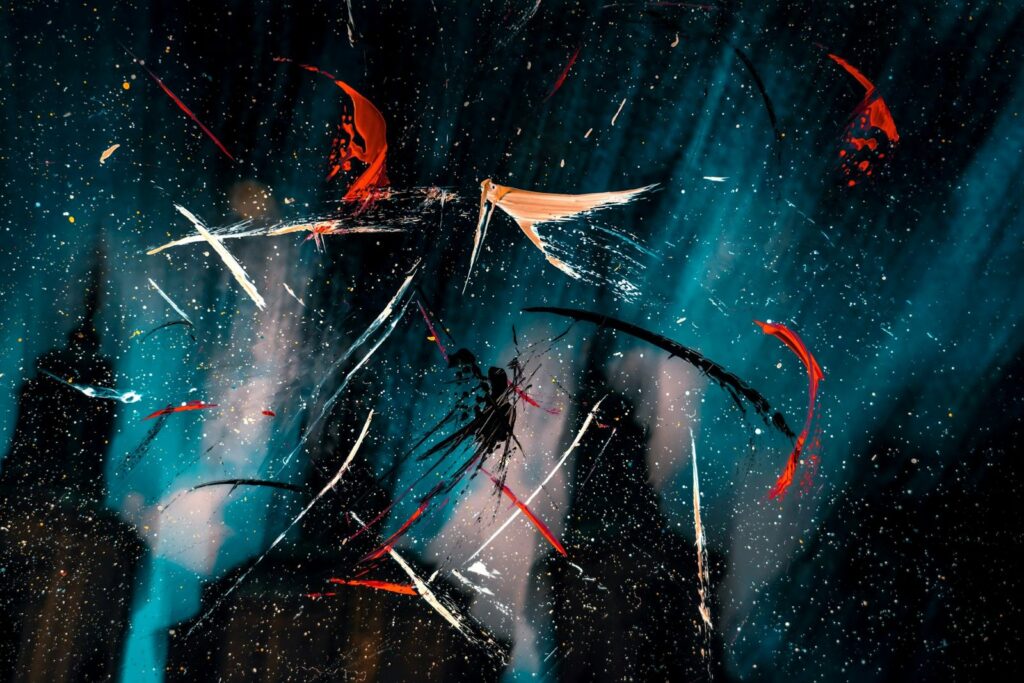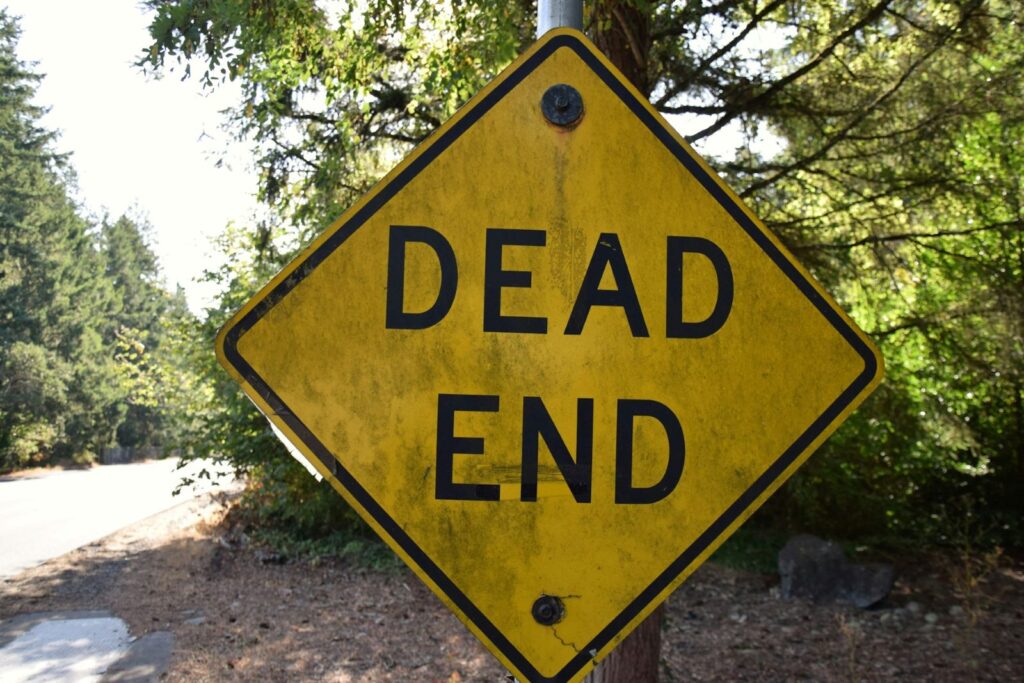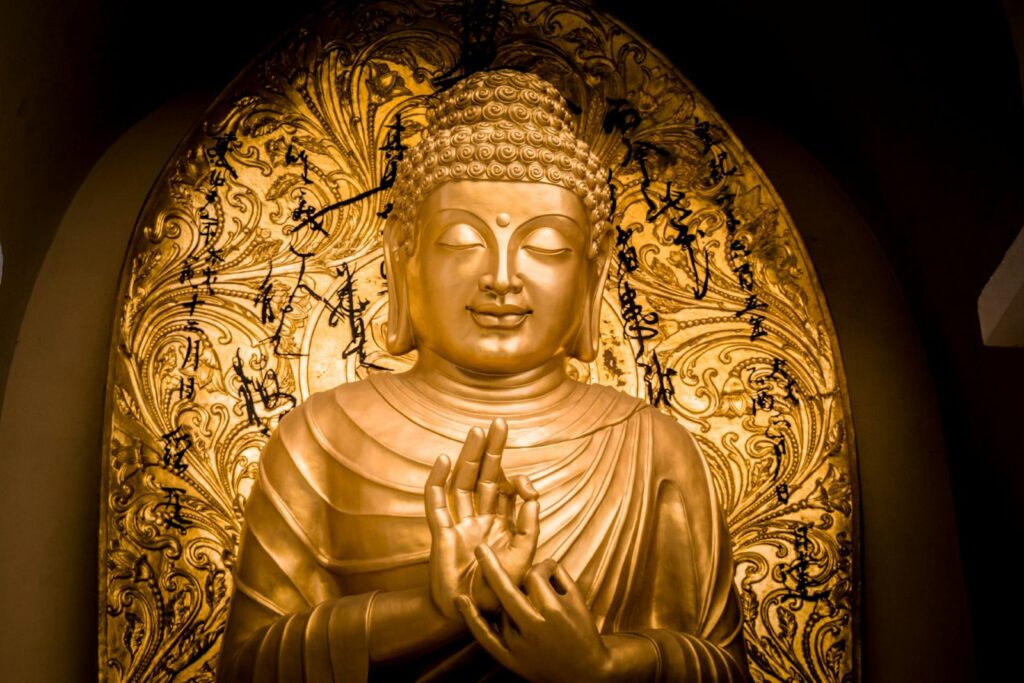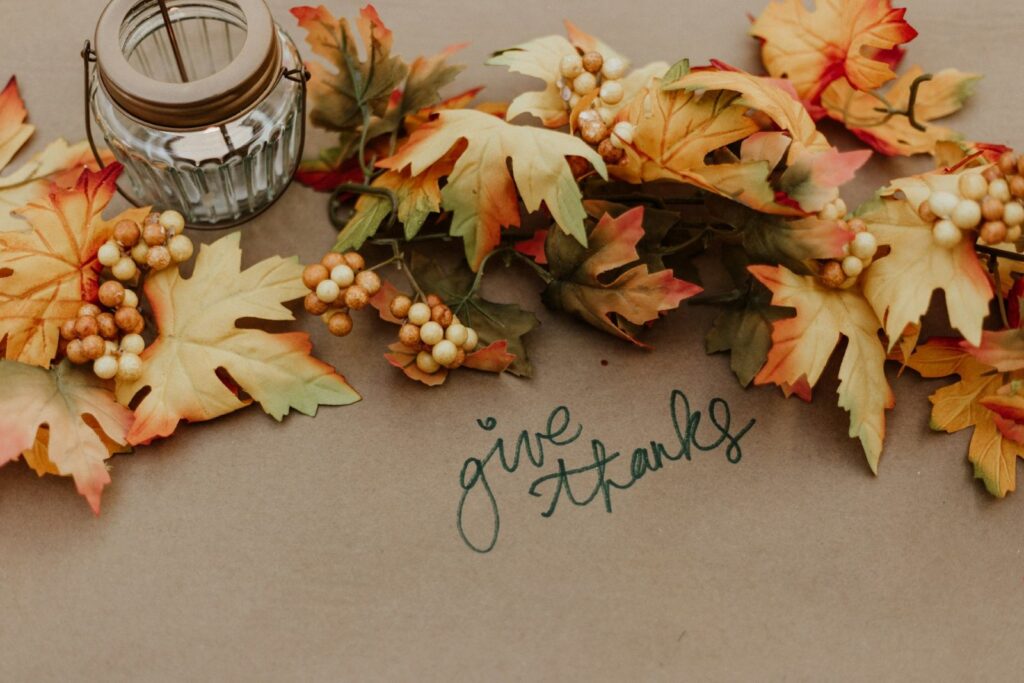I watched a retelling of Cinderella that absolutely gutted me because it was so sad, so unjust. I’m not going to link to it because I’m about to give major spoilers, but if you’d like to see it, message me. This adult version of the story was told from the perspective of one of the stepsisters, Drizilla, and in it, Cinderella was a manipulative psychopath who lied, cheated, and stole. The story ends with Drizella in a sanatorium, not visited by a single person, while Cinderella became a princess.
So again, not a “happily ever after” kind of story. Not a “feel-good” kind of story. It was a brutal story that touched on something very important, which Drizella said near the end: “No one really wants the truth. Not when the truth is ugly, and the liar is beautiful.” Yeeees. The truth is ugly, uncomfortable. It often asks something of us. It forces us to look at something we’d rather not look at because it challenges our worldview or a belief we have about someone or ourselves. It’s much easier, in some ways, to keep living a lie.
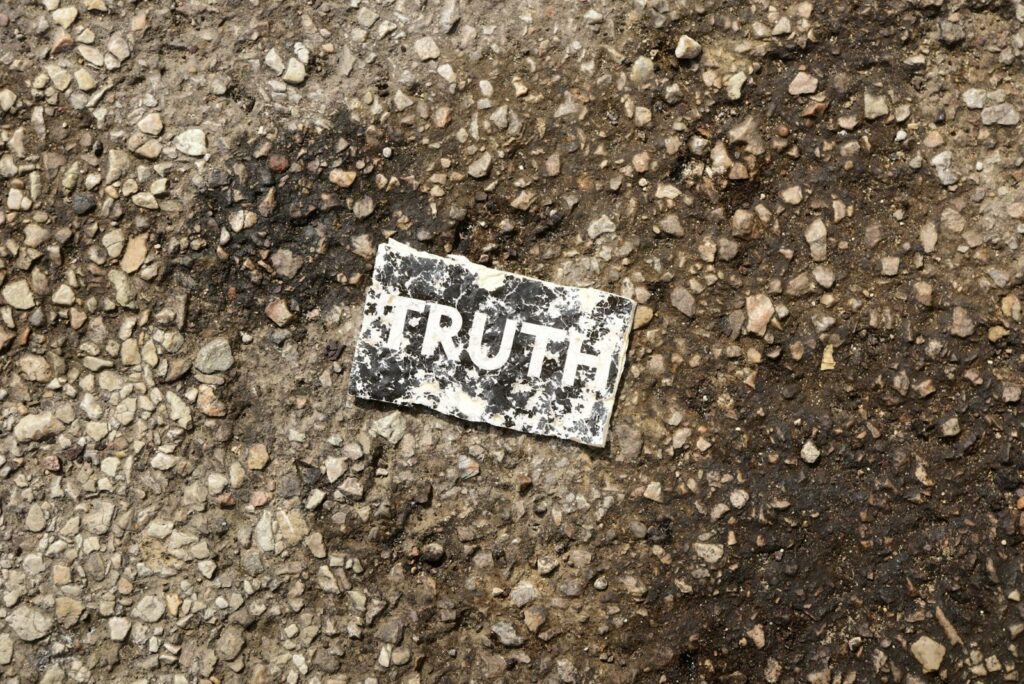
Sometimes the truth is ugly. Photo by Michael Carruth on Unsplash
I see this with politics – elected officials lie all the time. They sell a story because it sounds good. It’s much easier to say, “We’re investigating fraud in states that just happen to be Democratic-led,” rather than, “We plan to bully and terrorize people who disagree with us.” It sounds reasonable to investigate fraud, which it is, but why is the investigation selective? That’s not a baseless example, by the way. In the past few days, the Trump Administration announced it is investigating fraud in 14 blue states. But just the blue ones, not the red ones. How convenient.
But here’s the thing about truth. As Elizabeth Gilbert wrote in her latest memoir, “The truth has legs. It always stands. When everything else in the room has blown up or dissolved away, the only thing left standing will be the truth.” The way I like to think of it is you cannot escape reality. It will grab you by the collar and shake you. It will force you to look it in the face even when every part of you is trying to turn your head. You cannot escape reality any more than you can escape death.
This relates to spirituality because in Sanskrit, the unchangeable entity is Sat. The external manifestation of Sat is satya, or benevolent truthfulness. My spiritual teacher said, “Only satya or truth triumphs and not falsehood. Whenever there is a clash between truth and untruth, truth’s victory is inevitable. … Untruth, being a moving phenomenon, may attain a temporary victory on its march, but never a permanent one. … Falsehood does not win because it is relative, it is ever-changing.”
I take comfort in knowing that eventually the truth will come out. That falsehood doesn’t win because it goes against the unchangeable entity. That people can try to run away from the truth but they can’t run forever. Eventually, truth finds us all and the question becomes, what are we going to do about it?
I dream of a world where we understand a lie is often easier to swallow than the truth. A world where we recognize that even though it seems like lies are winning, their victory is only temporary. A world where we recognize we cannot escape the truth even if we try. A world where we remember the truth always comes out eventually, even when it’s ugly.
Another world is not only possible, it’s probable.
I had an interesting experience with certainty on Saturday night. I went to a Democratic Socialists of America teach-in where they discussed how veganism feeds anticapitalism and vice versa. They served dinner and I was SURE I’d be able to eat almost nothing because while I’m vegan, I don’t eat onions and garlic, which are basically in everything. It turns out they ordered food from one of a handful of restaurants that don’t cook with those ingredients!
And then on the way home, all the transit apps said my bus was on time (it wasn’t). I was certain I’d missed my connecting bus because of the delay, which, again, all of the transit apps said would be the case, but I didn’t! The connecting bus was also late, which meant I waited a grand total of 2 minutes rather than the 15 I begrudgingly anticipated. Here was the trickster working in my favor. I usually think of the trickster as the disruptive force that makes it rain on your wedding day, but sometimes the trickster can work to your benefit.
These experiences around uncertainty reminded me of a quote a friend shared. Painter Paul Cézanne said, “We live in a rainbow of chaos.” I don’t know about you but I don’t naturally associate “rainbow” with “chaos.” I don’t think of chaos and unpredictability as beautiful. I think of them as dark, ugly, something to be avoided at all costs. But that’s not the full story, is it? As the Post-It note on my bathroom mirror says, “Remember: Life can be surprising and delightful.”
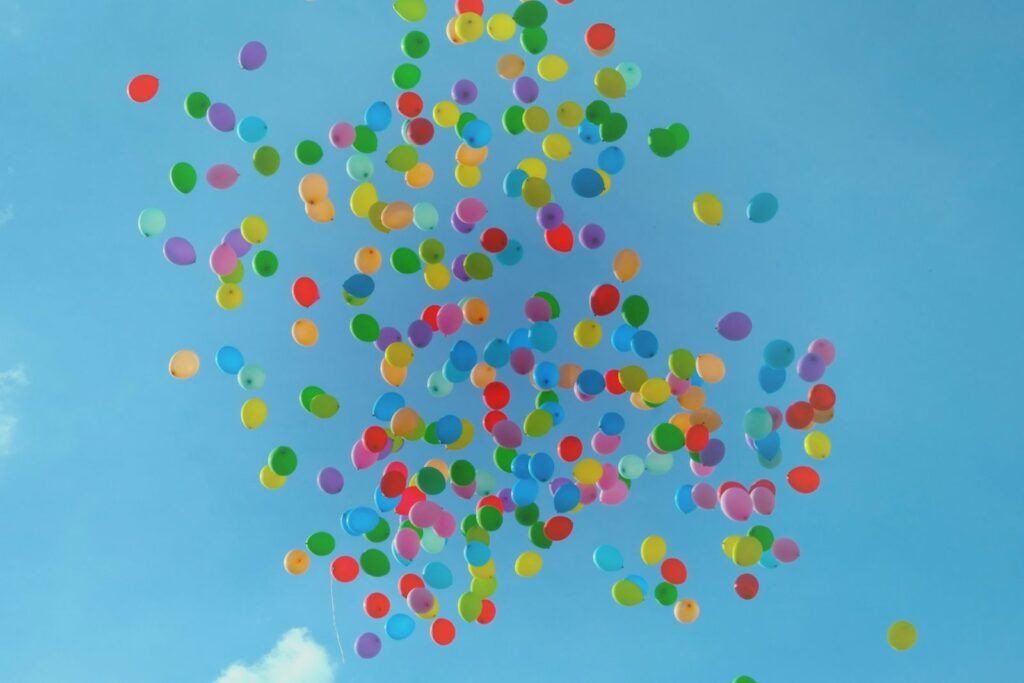
Is it a rainbow? Yes? It is chaos? Also yes. Photo by Luca Upper on Unsplash
Life can be chaotic and beautiful. Uncertain and joyful. It’s all of it. Life is a broad range of experiences and I do better when I embrace that. There’s a psychological concept that supports this called emodiversity, which means letting yourself feel an abundant range of emotions – not just the pleasant ones. A study of 37,000 people found that those who do that have better mental health, decreased depression, better physical health, and know how to handle a wide range of behavioral situations.
Diversity is the name of the game over and over again. Diversity in emotions. Diversity in the gut microbiome. Diversity in the gene pool. We are stronger with diversity. My spiritual teacher says:
“Some people say that disparity is the order of nature; therefore, there must be differences between one group and another, between rich and poor, etc. However, such a proposition is fundamentally incorrect. Instead, it is correct to say that diversity is the order of providence. One must remember that identicality is disowned by nature – nature will not support identicality. Whenever identicality occurs, a sort of structural explosion takes place and the entire structure is broken into pieces. So diversity is the law of nature and identicality can never be.”
He’s talking specifically about social structures but the concept also applies to our internal diversity, or in this case, our internal range of emotions and experiences. Life is meant to be a rainbow of chaos, and instead of becoming something to fear, I’m learning it’s something I can enjoy.
I dream of a world where we recognize the only certainty we’ll ever have is that life is uncertain. A world where we understand chaos and unpredictability don’t have to be bad things. A world where we embrace our full range of emotions and accept diversity internally and externally. A world where we remember we live in a rainbow of chaos.
Another world is not only possible, it’s probable.
A few people have said to me they don’t feel particularly motivated right now, that they’re low energy, and just generally not feeling amazing. What keeps coming to mind is a post I wrote in November 2021 about letting things be terrible. Even though I’m not recovering from a car accident or participating in the now-defunct NaNoWriMo organization challenge, this post still feels relevant. Enjoy.
Right now, I’m engaging in NaNoWriMo (National Novel Writing Month), which means I’m aiming to write 50,000 words in a month. For the uninitiated, that’s a novel the length of The Great Gatsby. It’s approximately 75 pages single-spaced in a Word processing document. I’m pretty sure this new novel I’m working on is the worst piece of writing in the known universe, but I’m pressing forward. (Side note from 2026 me: It took me four years to finish it, but I’m incredibly proud of the novel I worked on during NaNoWriMo, and the people who’ve read it all told me that I wrote something wonderful. I’m currently pitching the book to literary agents.)
The advice for those writing during NaNoWriMo is to tame your inner editor. Instead of hitting the “delete” key when you think something sounds awful, just keep putting words on the page. Let the writing be bad. There’s something liberating in indulging in that mentality. To revel in it. To acknowledge, “I know this can be said better, but I don’t care.”
As someone with a history of perfectionism, it’s difficult for me to stop judging end results, but that’s what I’m encouraging myself to do right now. I’m acknowledging the new novel is bad, that it will likely change a lot before I’m finished, but I’m letting that be OK. I’m not nitpicking myself in the moment and instead giving myself freedom to relax, to explore, to try new things on the page. It’s fun!
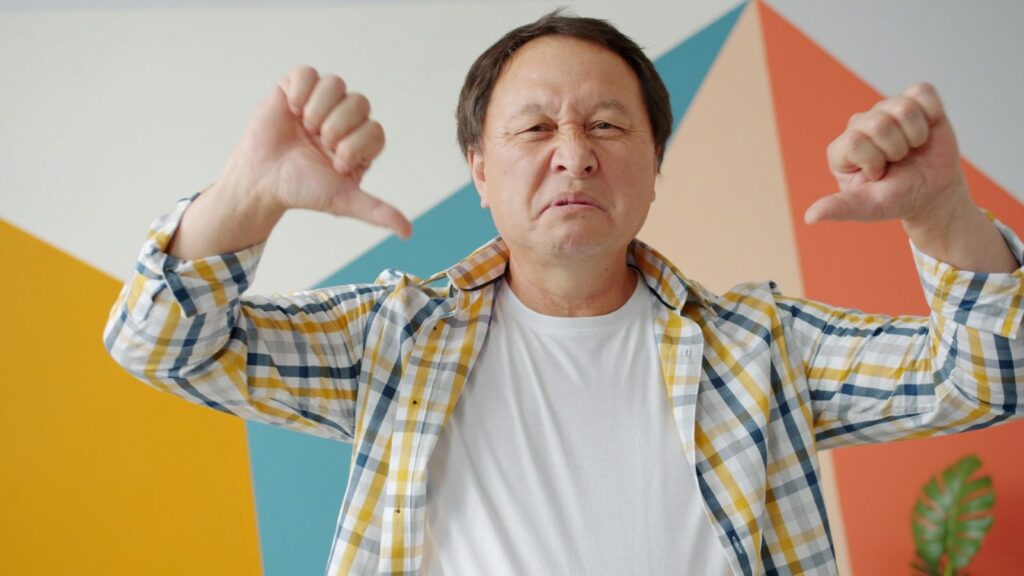
Let it be terrible sometimes. Photo by Vitaly Gariev on Unsplash
I notice this principle, “Let it suck,” applies not only to creative projects, but also to the physical body (sometimes). Headline: I’m fine, but on Saturday night, I was in a car accident. While driving through an intersection, a car ran a red light and hit the driver’s side of my friend’s car. We swerved to the right, and the impact jostled me so I banged up my elbow and knees against the console very, very minorly. It’s my right shoulder blade that hurts this morning from the whiplash.
I took out a tennis ball and massaged the shoulder blade, but it still hurts. Nothing is dislocated; it just hurts. Because I was in a car accident. And instead of rushing to fix it, change it, solve it, I said to the pain, “I’m here. I’m listening, body.” I’m letting the pain be here, I’m letting things suck because sometimes that’s all we can do. The body heals on its own timeframe and that doesn’t necessarily mean something is wrong.
It reminds me of this NY Times article I read a few years ago, where an American woman had a hysterectomy in Germany. When she asked about painkillers post-surgery, her medical team said she’d be given ibuprofen, and that’s it. When she talked to one of her doctors about it, he said, “Pain is a part of life. We cannot eliminate it, nor do we want to. The pain will guide you. You will know when to rest more; you will know when you are healing. If I give you Vicodin, you will no longer feel the pain, yes, but you will no longer know what your body is telling you. You might overexert yourself because you are no longer feeling the pain signals. All you need is rest.”
It confounded her, but it turned out her doctors were right. She didn’t need painkillers – she needed rest and patience. She let things suck, she let her body feel terrible, and that was her wisest course of action. For this month, I, too, am letting things suck in more ways than I anticipated, and that perhaps is a greater accomplishment than writing the worst novel the world has ever seen in the course of 30 days.
I dream of a world where we let things suck sometimes. A world where we let our creativity flow without any hindrance. A world where we check our self-editors at the door. A world where we let ourselves feel pain when it arises because it provides us with important information to guide our lives and direct our attention.
Another world is not only possible, it’s probable.
I just finished Elizabeth Gilbert’s latest memoir, All the Way to the River, and a few lines jumped out at me. In one art piece (because the memoir includes her doodles), she writes, “Replacing fantasies with different fantasies is not a good idea. Trade fantasy, which has a storyline, with mystery, which does not.”
As we open this new year, that feels like the best possible advice I could hear. So much of 2025 was a dismantling of fantasies and storylines for me. It was understanding that happily ever after doesn’t exist, and instead, life is a wheel. It was also a lesson in realizing that plans will always go awry, and it’s better for me to plan for that, or in other words, to welcome the trickster.
I want to be omniscient. I want to know everything right now, but as my former therapist used to say, “How’s that working out for you?” My friend, it is not working out for me. Not even a little. Trading one fantasy for another, one plan for another, only sets me up for disappointment. Honestly, I’m a little tired of disappointment. I’d like to get off this ride, please.
And even though my spiritual practice advocates recognizing our true nature, i.e., that we are all divine, or spiritual beings having a human experience, my teacher does NOT say we should try to know everything. In fact, he says, Cosmic Consciousness has been “creating this unique, colorful world with His various powers. Why He is doing so is known to Him alone; no one else knows it. … It is a fact that human beings with their limited intellect can never understand the secrets of why and how [God] has been creating this universe; their wisdom can never fathom this mystery.”
Instead of trying to puzzle everything out, my teacher says, “You should think, ‘My little intellect cannot fathom all this – rather let me do one thing, let me establish a relation of sweet love with Him,’” because ultimately, that’s the only thing that brings relief anyway.
In Liz’s poem “God Responds to My Withdrawal,” she touches on this, writing from the perspective of God. Here are a few excerpts:
Nothing you could ever feel
is bigger than what I can hold.
Let me surround you with holy silence, then
while you struggle.
Let me embrace you with my infinite mystery
while you rage.
….
Being everywhere, I have nowhere better to be.
Being everything, I have nothing better to do.
Bring it all to me, then.
….
Feel everything you need to feel, my child–
but feel me, too, in this unrelenting furnace.
Feel me, too.
As people, places, and things continue to baffle me, the best I can do is keep developing a loving relationship with myself and with my Higher Power. And instead of replacing one storyline with another, I’m better served by living in the mystery.
I dream of a world where we recognize our plans will always go awry. A world where we stop trying to shoehorn life into a particular storyline. A world where we turn inward for comfort and relief. A world where instead of trying to be omniscient, we make peace with living in the mystery.
Another world is not only possible, it’s probable.
I’m sick and feel unable to record the audio for this post. Also, I’m pretty sure no one wants to hear me sniffling anyway. In terms of why I’m resharing this post from August 2021, I honestly don’t know, but it’s what kept ringing through my head. Maybe someone out there really needs to hear it. Enjoy.
I keep thinking about an essay I read in the book All I Really Need to Know I Learned in Kindergarten by Robert Fulghum. He writes about how he lived at the dead end of a dead-end street, two blocks long, at the bottom of a hill in north Seattle. At the top of the hill, two big yellow and black signs declared: STREET ENDS. And at the end of the street where Fulghum resided, another big sign with stripes and reflectors stated the obvious: DEAD END.
You could see that “DEAD END” sign a long way off – in other words, the dead end didn’t sneak up on you. However, what’s so remarkable is people drove down the street anyway and seemed to be baffled when the street did, in fact, end.
Fulghum writes:
“Not just part way, mind you. Not just to where the reality of the situation cleared up. No, sir. They drove all the way down, right up to the sign, the big black one with stripes, the one that said DEAD END.
“And they read that sign two or three times. As if they were foreigners and had to translate the English. They looked on either side of the sign to see if there was a way around it. Sometimes they sat there for two or three minutes adjusting their minds …. There was no pattern. All kinds of vehicles, all kinds of people, broad daylight and pitch dark. Even a police car a couple of times. And once a fire truck.
“Innate skepticism or innate stupidity? I confess I do not know. A psychiatrist friend tells me it’s a sample of an unconscious need to deny – that everyone wants the road or The Way to continue on instead of ending. So you drive as far as you can, even when you can clearly read the sign. You want to think you are exempt, that it doesn’t apply to you. But it does.”
His last two lines especially strike me. We want to think we are exempt, that whatever we’re confronting – a dead-end street, a deadly virus, whatever – doesn’t apply to us. But it does. I’d wager the majority of us want to feel special. We want to be right, to know the truth, and even when there’s evidence demonstrating we’re wrong, we can’t accept it. Why is that? I think one reason is U.S. culture doesn’t have many examples of people saying, “I don’t know.”
Instead of saying, “I don’t know,” we make something up, we pretend to know. We try to save face versus practicing humility and admitting, “I don’t know,” or even, “Maybe I’m wrong.” Who says maybe I’m wrong these days?!? I can’t remember the last time I heard in a public space someone open to the possibility they don’t know everything. It’s as if due to the internet and having so much knowledge at our fingertips, we’re loath to say, “I don’t know” or “I could be wrong.”
Also likely wrapped up in “I don’t know” is fear. My spiritual teacher says, “Humans do not fear to tread a known path, but they always hesitate and fear to travel unknown paths.” Sometimes those unknown paths are intellectual ones. It’s far easier to cling to a thought or belief you learned early on and is corroborated by friends and family than to change your mind and believe something new. But that’s the beautiful thing about the mind – it can be changed.
There’s nothing shameful or humiliating about saying, “I don’t know,” or “I was wrong.” No human is omniscient. We aren’t supposed to know everything, and that means we’d be better off acknowledging that’s true. We’d also be better off accepting reality when it’s staring us in the face – like when we’re confronted with a dead-end street.
I dream of a world where we understand that if there’s a road sign that says “DEAD END,” the street ends. A world we understand if we think we know something other people don’t, we’re likely deluding ourselves. A world where we’re OK with some uncertainty and we embrace the power of saying, “I don’t know” and “Maybe I’m wrong.” A world where we all learn from dead-end streets.
Another world is not only possible, it’s probable.
One of my guiding principles is that the universe is always communicating with us, so when something unusual happens – like this week – I pay attention. The other day, something small and slender drooped from the top bar of my shower stall. Was it caulk? The glue unfurling? No. It was a millipede.
For context, I live on the second floor, and my bathroom is nowhere near anything natural like a tree. Also, I’ve lived here for nearly 11 years, and I’ve never seen a millipede in my home before. In other words, this isn’t a common occurrence. This millipede essentially appeared out of thin air, and I’m choosing to believe it was to tell me something.
I googled the shamanic meaning of millipede and nothing resonated until I read a post from the website Symbols and Synchronicity, where the author wrote that millipedes are messengers. “Not messengers in the way of grand declarations, but gentle ones—quiet teachers reminding us that transformation is not always loud,” she said. “Many traditions hold them close, seeing in their patient crawl the essence of protection, endurance, and hidden strength. . .The millipede, coiling slow and sure, brings lessons in groundedness and trust in the path beneath our feet.”
I won’t quote the entire piece – even though it’s gorgeous and I recommend reading it – but here are a few more parts that jumped out at me: “[The millipede] teaches in silence. No bark, no roar, no teeth. But you follow her for a while and she’ll show you how to go on when everything says stop. She’ll teach you to live like the forest floor lives: slow, patient, making something rich out of all that has fallen apart.”
And one more quote: “So if she comes, stop. Get low. Lay your palm to the ground and say thank you. For the lesson. For the witness. For the reminder that the slow way is not the wrong way. That you can lose things, many things, and still go on. That your healing, like hers, may come not in leaps—but in inches. And that is holy, too.”
When I read the piece from Symbols and Synchronicity, tears started streaming down my cheeks, and even now I’m getting choked up, because this year has been like that. Losing things, grieving dreams, releasing old ways of being. It’s been a deep and slow healing process. And oftentimes I feel like I’m backsliding, that I’m not making any progress at all. But then I get a message from the millipede, who says, “You’re healing in inches.”
No one else may notice the healing; I might not be able to broadcast it like a story on the 6 o’clock news, but it’s happening. This subtle growth is fitting for the season we’re in, too, in the Northern hemisphere. Winter is about hibernation, taking things slow. I know that’s counter to the messaging we get around the holidays but that doesn’t make it any less true.
The millipede reminds us to go slow, to remember slow is not bad or wrong. Sometimes it’s the only way and it’s still beautiful and worthwhile. Sometimes healing happens in inches, not leaps, and it’s still worth celebrating.
I dream of a world where we understand healing doesn’t always look the way we expect it to look. A world where we recognize it’s often slow and deep. A world where we celebrate the progress we’ve made, even if no one else can see it. A world where we remember that sometimes healing happens in inches, not leaps.
Another world is not only possible, it’s probable.
It’s funny, or perhaps timely, that as we approach the longest night of the year in the Northern hemisphere that I’m thinking of light, both literal and metaphorical. On the metaphorical level, I very much relate to the story of the Golden Buddha.
Several hundred years ago in Thailand, monks covered a giant golden Buddha statue with clay to protect it from an attack by the Burmese army. During the attack, the monks were killed, so no one knew that beneath the clay was actually a golden Buddha. It wasn’t until 1957 when some monks attempted to relocate the Buddha that this discovery was made. They noticed a large crack in the clay, through which streamed something gold. The monks used a hammer and chisel to chip away at the clay exterior until it was revealed that the entire statue was made of solid gold.
I feel like that clay Buddha. The past several months have been a process of chipping away at my exterior – all the limiting beliefs, all the maladaptive coping strategies, all the everything that’s kept me from being my true self. The whole thing has been deeply painful. As if to encourage me during this process, I pulled an oracle card the other day. Here’s an excerpt of what it said:
“Through the natural process of transformation, great leaps are indeed possible. The situations in your current life are particularly geared toward a more significant manifestation that is coming to you according to your life path and purpose. This is a stage of preparation and building a foundation that will hold you strong and centered as your creative journey unfolds and your life path becomes ever more brilliant and luminous. Be hopeful and trust in the light you sense within you, for this light that is within you is simply revealed more fully. An affirmation for you: ‘I surrender what is into the loving fire of transformation. The light within me illuminates the present and manifests the future in the highest creative expression of unconditional love.’”
When I pulled that oracle card, I cried because it struck me that everything I’m going through isn’t just a growth opportunity – it’s all setting me up for a stronger, more centered self. It’s setting me up to be happier. And it’s forcing the real me to shine through. Because of the way I’m oriented, I also think about how becoming ever more luminous helps other people.
It’s currently Hanukkah, which, yes, celebrates a war battle, but it’s also a symbolic battle where we remember the flame of one lamp lights up countless others, both literally and metaphorically. When we spread our light, our goodness, we light up other people. And together, we create a row of lights such that darkness retreats.
There’s a lot of darkness in the world, but there’s also a lot of light, both literally and metaphorically. People are hanging lights in their homes to bring in more literal light, but they’re also doing kind things for one another to bring in more metaphorical light. They watch their friend’s kid, they volunteer, they show up to protect immigrants. People all over the world are letting their goodness shine through and becoming ever more luminous. In this holiday season, that’s my wish for you, too.
I dream of a world where we recognize sometimes we go through hard things because ultimately it will take us somewhere happier and healthier. A world where we understand beneath a clay exterior, there lives a golden Buddha within each of us. A world where we let our light shine and become ever more luminous.
Another world is not only possible, it’s probable.
I keep thinking about the movie Under the Tuscan Sun so I decided to recycle one of my posts about it. This one is from January 2012. Enjoy.
I have preconceived notions of what my life will look like and how I will get my needs met. What I’m finding out, though, is the universe takes care of me in ways I didn’t think it would. For instance, this week I’ve been sick. So sick I didn’t leave the house for three days and mainlined tea like it was my job. I had this idea that the only people who would take care of me when I’m sick are my mom and my boyfriend. Well, my mom lives in Seattle, and my boyfriend is nonexistent, so I resigned myself to being really pathetic on the couch. You know what happened, though? My good friend came over and made me dinner and tea.
My needs are getting met, just not how I thought they would. It reminds me of one of my favorite movies, Under the Tuscan Sun. At the beginning of the movie, Diane Lane’s character says she wants a family in her house, a wedding, and someone to cook for. At the end of the movie, she has all those things. Her best friend and her best friend’s baby moved in, she held a wedding for a neighbor, and the people to cook for were the contractors on her house. Her wishes came true, but in a different form than she anticipated.

I’m going to pretend this is all vegan! Photo by Brooke Lark on Unsplash
My view is limited. I can get tunnel vision with how I think things should go but my higher power sees everything. My higher power says, “I will give you everything you want and more, but it’s going to come out of left field.” I didn’t expect anyone I’m not dating would voluntarily make me dinner while being sick. But here was this friend doing exactly that.
I don’t need to get caught up in the “how” of things – I can instead let the universe work its magic. Doreen Virtue has a great quote where she said we want to hand life a script and quibble about what’s on page 42. I don’t want to quibble about page 42 anymore. I would rather say, “Hey God, here’s what I want, here are my needs and desires, I know they’ll be fulfilled, and I look forward to seeing how you make it happen.” Because in the end, it most likely will look different than I think it will.
I dream of a world where we’re open to all possibilities. A world where we understand our needs and desires get met in interesting and unique ways. A world where we don’t hand the universe a script because we realize it’s more like improv – there are certain parameters, but for the most part, stuff gets made up on the fly. I dream of a world where we rest easy knowing we’ll get exactly what we need as long as we’re open to whatever form that will take.
Another world is not only possible, it’s probable.
You may be tired of hearing about gratitude, but at the risk of overloading you, I want to talk about gratitude. Author and speaker Case Kenny reminded me recently of a powerful way to feel grateful. I don’t know about you, but gratitude can start to feel rote. Like, of course, I’m grateful for clean drinking water and a safe place to live. But do I always feel that in my body? I wish I did, but I do not.
Case said to up the ante on gratitude, think back to when things were challenging and compare that to how things are now. So, remember the time you broke your leg, and you’ll feel grateful you can walk unencumbered. Or reflect on that camping trip where all your belongings got soaked, and you’ll feel grateful you’re not sleeping in a tent.
As for me, I’m feeling grateful for something as simple as being able to sit upright. Last Monday, I was hit with the worst case of vertigo of my life. If you’re unfamiliar, vertigo means you’re dizzy and the entire room is spinning even though you’re not moving. For some people, like me, their eyes dart back and forth uncontrollably when they sit or stand. There’s no medication for vertigo because the issue is with the inner ear. When an ear crystal, which controls balance and orientation, gets dislodged, you experience vertigo.
The solution is to reset the inner ear with various maneuvers. Well, I tried all those maneuvers and they didn’t work. So I spent 16 hours lying in bed because I couldn’t move without the world spinning. It was so bad that I couldn’t refill my water glass or get anything to eat. It was so bad that even though a few people offered to come over to support me, I couldn’t leave the bed to unlock the door.
After tossing and turning the entire night, the ear crystals reset. I’m still recovering – my head and neck tried really hard to stabilize so they’re stiff and sore – but thankfully, the vertigo is gone. I didn’t think I’d be grateful for something I take for granted literally every day, but I am. I’m reminded of how easily I could be incapacitated, of how fragile the human body is, and so today, I’m grateful.
Gratitude is also on my mind not because we recently celebrated Thanksgiving here in the U.S., but because it’s my birthday on December 1. As I get older, I’m constantly reminded that nothing is promised. There’s no guarantee that any of us will reach a certain age, and so every year truly feels like a celebration.
What’s interesting is that my last birthday was emotionally fraught because I turned the big 4-0 and my life didn’t (and doesn’t) look how I thought it would. I had so many feelings about hitting that milestone, and this year, things feel simpler. This year, I’m just enjoying that I’m here, that I’m alive, and that I’m loved. Not only is that enough, it’s everything. So yeah, I’m grateful. And I hope you find something to be grateful for, too.
I dream of a world where we reflect on when things went wrong so that we’re grateful when things go right. A world where we feel grateful for the smallest things because we recognize there are no guarantees in this life. A world where we practice a new way to give thanks.
Another world is not only possible, it’s probable.
I do plan to write original content again but today is not that day. This post is from August 2024. Normally, I don’t like to recycle content written in the past year, but what’s most true for me right now is the need to be where I am, and the need to go slow. Enjoy.
An emotion I feel frequently is frustration, and it’s usually because people and situations aren’t moving as fast as I’d like. I don’t mean literally – I’m not a speed demon – I mean in terms of actions. A frequent complaint I have is, “Why is this taking so long?” That’s everything from a person returning my telephone call to becoming a bestselling author. I want everything yesterday. The whole “waiting” thing is a ripoff, if you ask me.
Given my penchant for moving quickly, it should be no surprise that the universe gives me plenty of opportunities to practice patience. I’ve written dozens of posts about patience over the years, including earlier in the year when I wrote about the future unfolding. I know that things bloom when they’re ready, and we’re looking at our watches while God is looking at the calendar. But even with all those posts, I still want things to move quickly! This might also be a good time to mention it’s taken me three times as long to write this post as my other ones, and that even writing a post about it being OK to go slow, I want to go fast. And not only do I want to go fast, I want to be somewhere I’m not.
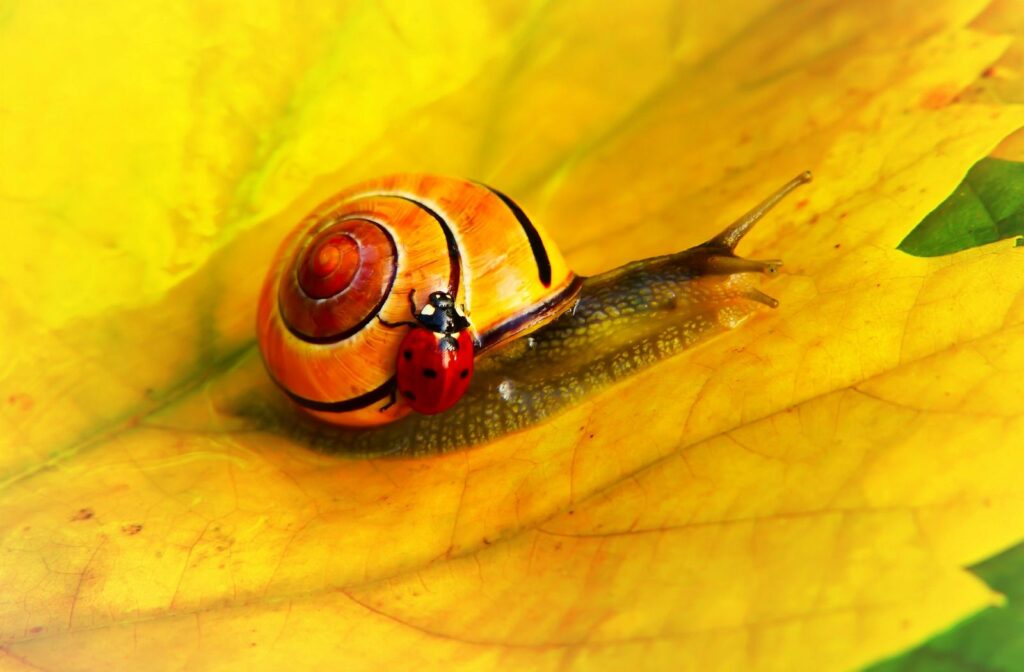
A snail AND a ladybug! It’s OK to go slow. Photo by Krzysztof Niewolny on Unsplash
I’m struggling with what to say, but when I let my writing flow in the form of a letter, the words poured out. Here’s a letter to me from my Great Self, but maybe your Great Self wants you to hear it too:
“I know you want everything yesterday. I know nothing moves as quickly as you’d like. You see the endgame, you know how things could be. It’s one of your gifts to dream, to imagine. It’s the creative spark that lives within you, seeking expression. You have an active mind and that’s one of the best things about you.
“It’s easy for you to make big jumps, to go from A to Z very quickly but not everyone else is like that. Other people need to take baby steps. They need to move more slowly. They need time for their brains and bodies to catch up. It’s OK for you to match their pace, it’s OK for you to go slow. It’s OK for you to rest and relax and know that everything is going exactly as it should at the pace it should. That includes your emotional states.
“What I really want you to know is you aren’t alone; you aren’t doing all this by yourself. It’s not your self-will that’s making things happen. It’s you matching the universal, Cosmic rhythm. It’s you syncing your desires with the Cosmic desires. It’s the outside world pouring into you, supporting you.
“When you want to rush, think about the natural world. You may want to harvest blueberries right now, but you have to wait for a bud, then a bloom, then a blueberry. The natural world knows how to move slowly. It’s the human world that does not. It’s people who say you should have this accomplished by this age, and if you don’t, you’re a failure. It’s the human world that touts overnight successes and doesn’t honor the people who write four books before they publish a bestseller. It’s the human world that tells you that you should be moving at a pace other than the one you’re moving at.
“All of nature is here telling you it’s OK to go slow, to be where you are, that you can take all the time you need. Rest, be gentle with yourself, and know there’s nothing shameful or wrong about incrementally working toward the things you want. That’s usually how it happens.
“Remember that your spiritual teacher says, ‘Suppose, immediately after planting some saplings and seeds, someone digs them up to find out if they have taken root or sprouted. That would not be considered wise.’
“Sometimes you have to wait for your desires to be expressed, but there’s nothing wrong with that. It’s natural and the way the world works. You’re doing great and even though you don’t believe it, all is well, my dear, all is well. Go as slow as you need to go. What is meant for you will not run past you. Trust that. And trust that you are exactly where you need to be.”
I dream of a world where we remember it’s humans who tell us to rush and go as fast as possible. A world where we understand nature models slow and steady progress. A world where we recognize it can take a while for our dreams and desires to sprout but that doesn’t mean they aren’t blossoming. A world where we remind ourselves it’s OK to go slow. A world where we let ourselves be where we are.
Another world is not only possible, it’s probable.
